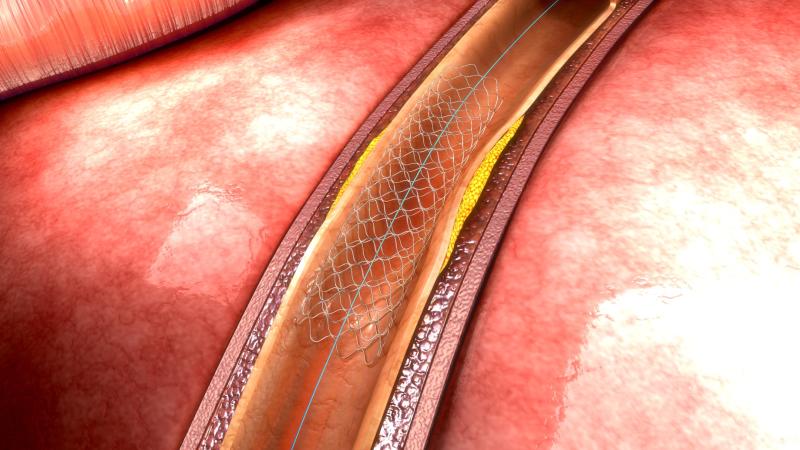
The presence of autoimmune disorders may lead to poor outcomes after percutaneous coronary intervention (PCI), leading to a greater risk of major adverse cardiovascular events (MACE) and death, reports a recent meta-analysis.
Accessing the databases of Medline, Embase and the Cochrane Library, researchers retrieved 11 studies, resulting in a cumulative sample size of 824,745. Only those that examined the effects of autoimmune diseases on the following outcomes after PCI were included: MACE, in-hospital and long-term mortality, repeat revascularization, myocardial ischaemia, restenosis, and myocardial infarction.
Pooled analysis of studies that had a 1-year follow-up period showed that MACE occurred in 17 of 47 patients with autoimmune disease, and in 756 of 3,737 of those without such conditions. The resulting relative risk (RR) was 2.24 (95 percent CI, 1.20–4.16), indicating a significantly greater likelihood of MACE among those with autoimmune disorders.
The elevated risk of MACE in those with autoimmune diseases remained significant over an 11-year follow-up period (RR, 1.10, 1.04–1.17).
Autoimmune diseases likewise appeared to play an important role in long-term survival. While mortality risk was comparable over a 1-year follow-up (RR, 1.20, 0.47–3.07), those with autoimmune diseases showed a significantly greater likelihood of death over an 11-year period (RR, 1.38, 1.25–1.51).
Finally, autoimmune diseases significantly influenced the risks of restenosis, ischaemia or myocardial infarction, and repeat revascularization, though the effects tended to vary over different lengths of follow-up.